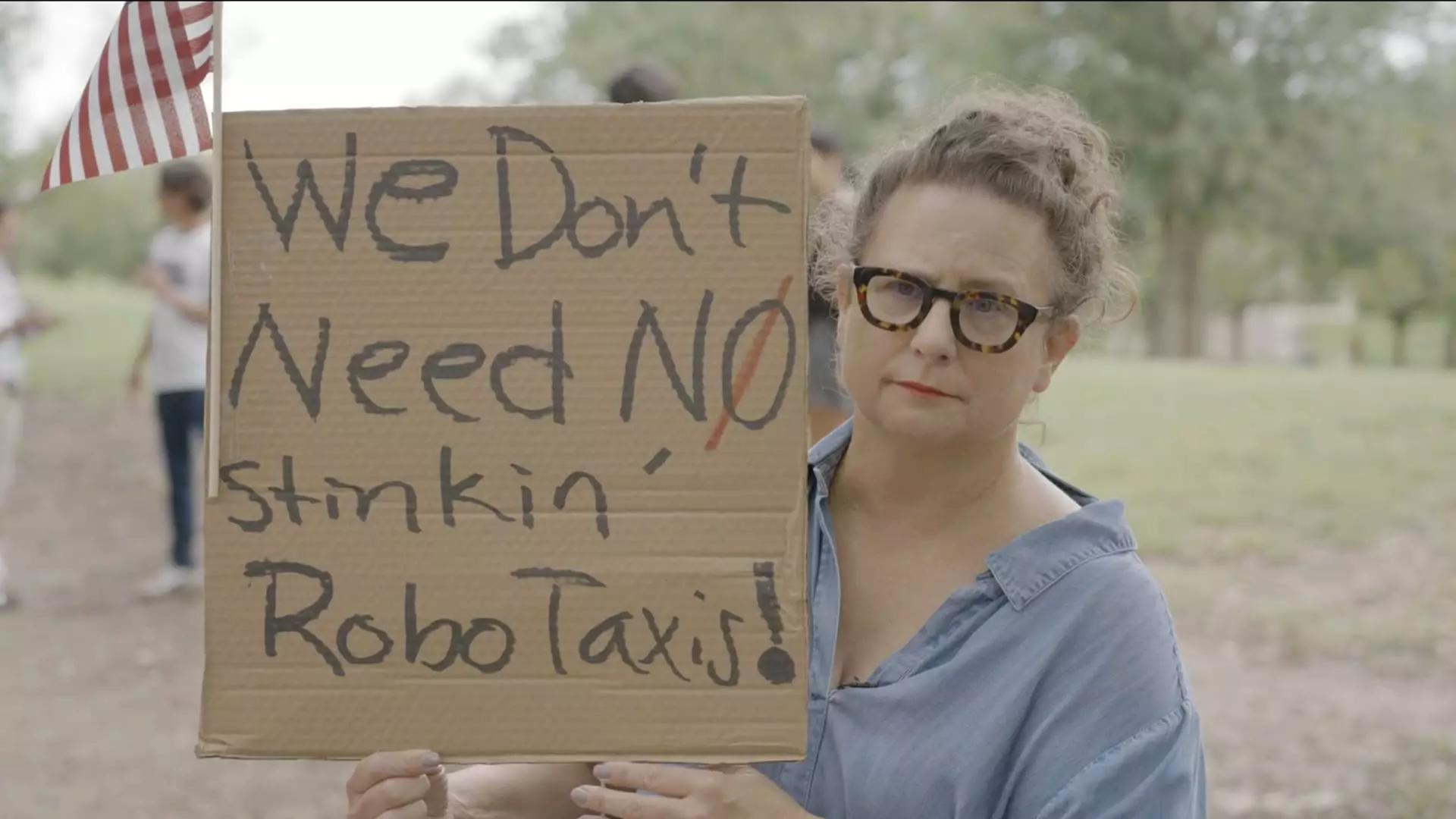As Elon Musk ambitiously sets his sights on launching Tesla’s robotaxi pilot service in Austin, Texas on June 22, a cacophony of dissent resounds in the streets. The uprising led by safety advocates and political activists highlights a glaring concern: the intersection of technological advancement and public safety. Amidst the hype surrounding Musk’s futuristic ambitions, protesters from groups such as the Dawn Project, Tesla Takedown, and Resist Austin stand firm in their belief that the nascent robotaxi service is fraught with risks that far outweigh the promised convenience.
Notably, these dissenters focus not only on Tesla’s vehicular technology but also on Musk’s troubling affiliations with the Trump administration. This political disengagement from a company that is often hailed as a beacon of progress creates a cocktail of skepticism among citizens who prioritize safety over unchecked innovation. The protests are thus twofold: they are a cry against hazardous technology and a repudiation of Musk’s political escapades.
Autopilot or Autopocalypse?
Tesla’s piloted driving systems, which are heralded for their Autopilot and Full Self-Driving (FSD) functionalities, have not been without controversy. Current data from the National Highway Traffic Safety Administration reveals a chilling reality—vehicles equipped with these systems have been involved in numerous accidents, including fatal incidents. The irony is glaring: while Tesla positions itself at the forefront of automotive innovation, the very technology designed to advance safety may very well compromise it.
Critics, particularly members of the Dawn Project, wield a recent demonstration as a damning indictment of Tesla’s claims. By showcasing a Model Y, equipped with a recent FSD update, navigating dangerously close to a school bus with its stop sign activated, they spotlight the unsettling implications of rolling out such technology. Musk’s promises can ring hollow when juxtaposed with the visceral reality of a child-sized mannequin meeting the tire of a speeding robotaxi.
The Technological Gamble of the Century
In a society that’s increasingly reliant on technology, the allure of autonomous vehicles can be intoxicating. However, the eagerness to embrace self-driving cars should not overshadow critical discussions about safety, ethics, and transparency. The information gap surrounding Tesla’s safety testing results raises eyebrows; how can consumers trust a system when the details eluding discussion might be the very factors determining their well-being?
Witnessing individuals like Stephanie Gomez express their lack of confidence in Tesla’s safety standards offers a poignant reminder: technological innovation must work in tandem with accountability. Moreover, the absence of substantive safety testing results compounds this distrust, with protesters like Silvia Revelis echoing concerns that resonate beyond a single company or product—the cries for transparency and safety are universal.
In essence, as Tesla gears up for its robotaxi service, one must question whether we are on the verge of a smart transportation revolution or a dangerous plunge into the unknown. The clarion call from the streets of Austin is not one merely against Elon Musk but an urgent plea for a future where technology enhances rather than endangers lives. As society grapples with the marvels and menaces of innovation, one thing is clear: safety cannot be an afterthought or a mere selling point; it must be at the forefront of the discourse.



Leave a Reply